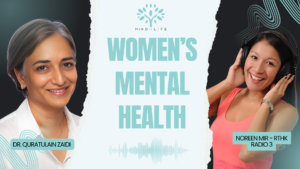Before the pandemic, Samantha was a social person. She would meet her friends and colleagues at least five times a week. Samantha would go to work, have her lunch break or a coffee break with someone, and then she would go for happy hour after work. Her kids were in school during the day and were fed by the helper when she got home. She would read her children a story and put them to bed. On the weekends, she would spend time with her children on playdates. Though she was a single mother, she felt she had a good handle on things.
The pandemic felt like a sudden change that made her feel trapped. During the lockdown, she began to get depressed. The isolation and loneliness were too much for her. To add complexity to the situation, her children were also at home doing online school. However, after a while, she adapted. She could clean her house, assist her children with their schoolwork, and complete her tasks at the office.
Samantha soon had to adapt to another change again. She felt overwhelmed when she was told she needed to come back into the office. She realised she would miss the time she had with her kids. Soon her friends and colleagues wanted to spend time with her as well. Although she missed her social life, the thought of making time for them made her anxious. Getting out of bed in the morning became a chore. She knew that she would run the rest of the day as soon as she got up. When she was working from home, she had more time to rest.
Feeling overwhelmed can happen for many reasons. For example, you might feel financially burdened, short on time, or have too much on your plate. When your body is in a state of chronic stress, it begins to break down. You can experience inflammation, chronic fatigue, moodiness, and a weakened immune system. Overwhelm can feel like paralysis, and you might start procrastinating.
Here are some tips to help relieve some of that overwhelm.
- Prioritise. What are your main priorities? For some of you, it might be work; for others, it might be your family. Some people find making lists helpful so that they can see what needs to be done. Do the priority things first, and then work down from most important to least important. The least important things might not get accomplished, and that is ok.
- Daily, weekly and monthly tasks. Creating a colour-coded calendar of what needs to be done and when can help. When you can visualise what needs to be done, you can stress less. Daily tasks might need to take priority over weekly tasks. Likewise, weekly tasks take priority over monthly tasks.
- Do a little each day. Some people feel they need a whole day to do tasks like cleaning the house or writing. You might feel less overwhelmed if you break the larger tasks into smaller daily tasks. For example, you can clean one thing a day, write one thing a day or work on your business a little each day.
- Watch how you speak to yourself. Instead of saying I do not have time for any of this! You can say, I can tolerate this, I can manage this, I can handle this. Life feels less heavy when you believe in your ability to cope with things. You can also say, I get to do this instead of I have to do this. Practising self-compassion can help you to feel less guilt and shame when things aren’t done.
- Make time for yourself. All work and no play can lead to burnout quickly. Set time for yourself every day to decompress. Make downtime part of your daily, weekly, and monthly routine. Our mind and our body are connected. Therefore, taking care of yourself physically by eating healthy and exercising can also help with overwhelm.
Therapy sessions can help you feel less overwhelmed by helping you to calm your nervous system. Sometimes friends and family want to help, but they aren’t sure how. You might also feel more comfortable speaking to someone more neutral. Often people feel that their feelings and emotions are too heavy for their loved ones. Trained professionals can handle your thoughts, experiences, and feelings. To book a consultation call (852) 2521 4668 or email [email protected].
If you are based in the UK, we offer online therapy to help you, just contact us here.







